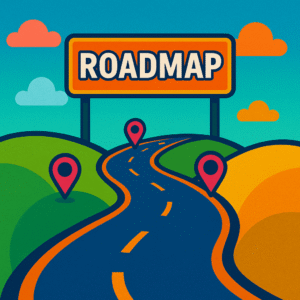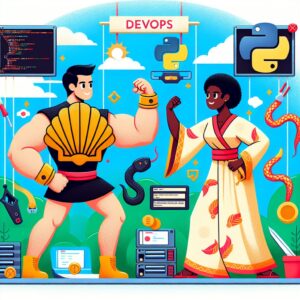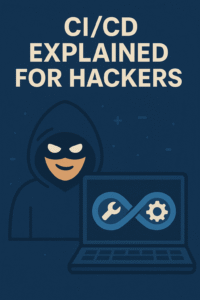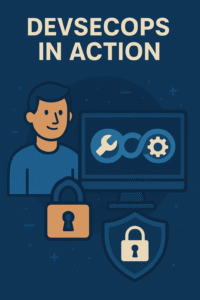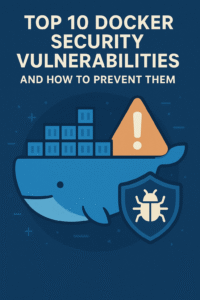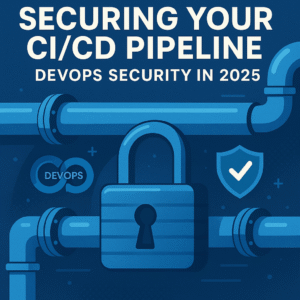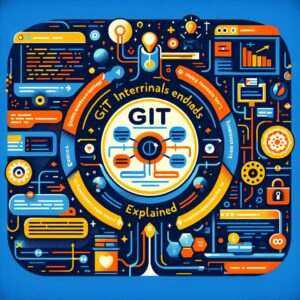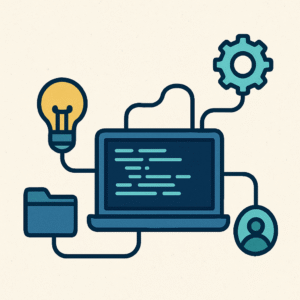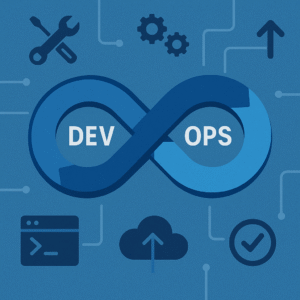Top 10 Best Certifications for DevOps Professionals
Your Ultimate Guide to DevOps Credentials in 2025
- Introduction
- Why DevOps Certifications Matter
- Criteria for Selecting Certifications
- Top 10 Certifications for DevOps Professionals
- Key DevOps Skills and Certifications
- Career Impact and Salary Potential
- Cost and Preparation Strategies
- Tools and Learning Resources
- Use Cases and Scenarios
- Pros & Cons of Certifications
- How to Choose the Right Certification in 2025?
- Conclusion
Introduction to Top 10 Best Certifications for DevOps Professionals
In 2025, **DevOps professionals** are pivotal in driving digital transformation through automation, CI/CD pipelines, and cloud-native architectures. Certifications validate expertise in tools like Kubernetes, Terraform, and AWS, making them essential for career growth in a market where 85% of enterprises adopt multi-cloud strategies (2024 data). This guide explores the **top 10 best certifications for DevOps professionals**, covering credentials that empower you to excel in infrastructure as code (IaC), container orchestration, and Site Reliability Engineering (SRE). We’ll analyze selection criteria, skill relevance, career impact, and practical steps to choose the right certification. By the end of this 2000+ word guide, you’ll know how to advance your DevOps career. For related insights, see our DevOps trends guide.
Why does this matter? With DevOps roles growing 25% annually and salaries averaging $130,000 in the U.S., certified professionals are critical to building scalable, efficient systems.
Why DevOps Certifications Matter in 2025
Certifications for **DevOps professionals** demonstrate proficiency in automation, CI/CD, and cloud infrastructure, areas where 70% of hiring managers prioritize certified candidates (2024 survey). Credentials like Certified Kubernetes Administrator (CKA) or AWS Certified DevOps Engineer validate hands-on skills in managing Kubernetes clusters or deploying AWS CodePipeline, ensuring alignment with industry standards.
Certifications boost salaries by 20–30%, with certified DevOps engineers earning $120,000–$160,000 in the U.S. (2024 data). They also keep you competitive in a cloud-native era, covering trends like GitOps, AI-driven automation, and serverless architectures. A 2024 report noted that 65% of DevOps job listings require Kubernetes, AWS, or Azure certifications, highlighting their demand. Explore foundational concepts in our DevOps fundamentals guide.
Criteria for Selecting Certifications
Choosing the right DevOps certifications involves evaluating:
- Relevance: Does the certification cover 2025 trends like GitOps, multi-cloud IaC, or serverless? CKA and Terraform Associate are highly relevant.
- Industry Recognition: Credentials from AWS, Google Cloud, HashiCorp, or CNCF are globally respected.
- Skill Level: Entry-level (e.g., AWS Certified Cloud Practitioner) vs. advanced (e.g., CKA, AWS DevOps Engineer).
- Cost and Time: Exams range from $70 to $395, with preparation times of 1–6 months.
- Career Goals: Platform engineers prioritize CKA; cloud architects focus on AWS or Azure certifications.
These criteria ensure you invest in certifications with maximum return on investment. For career planning, see our DevOps career path guide.
Top 10 Certifications for DevOps Professionals
Below are the **top 10 best certifications for DevOps professionals** in 2025, selected for their relevance, demand, and career impact:
- AWS Certified DevOps Engineer – Professional: Validates expertise in automating AWS infrastructure, CI/CD pipelines (e.g., CodePipeline), and monitoring with CloudWatch. Ideal for cloud-focused DevOps roles. Cost: $300; Prep: 4–6 months.
- Certified Kubernetes Administrator (CKA): Covers Kubernetes cluster management, critical for 80% of cloud-native applications. Includes hands-on labs for deployment and scaling. Cost: $395; Prep: 2–4 months.
- HashiCorp Certified: Terraform Associate: Focuses on IaC for multi-cloud environments, enabling automation of AWS, Azure, and GCP resources. Cost: $70; Prep: 1–3 months.
- Microsoft Certified: Azure DevOps Engineer Expert: Validates skills in Azure CI/CD, IaC with ARM templates, and monitoring with Azure Monitor. Suits Azure-centric roles. Cost: $165; Prep: 3–5 months.
- Google Cloud Professional DevOps Engineer: Covers GCP CI/CD, SRE practices, and automation with Cloud Build. Ideal for SRE and cloud-native roles. Cost: $200; Prep: 2–4 months.
- Docker Certified Associate (DCA): Teaches Docker containerization, essential for microservices and CI/CD pipelines. Cost: $195; Prep: 2–3 months.
- Certified Jenkins Engineer (CJE): Focuses on Jenkins for CI/CD pipeline automation, widely used in enterprise DevOps. Cost: $400; Prep: 2–4 months.
- Red Hat Certified Engineer (RHCE): Covers Ansible automation and Linux system administration, valuable for hybrid cloud environments. Cost: $400; Prep: 3–5 months.
- AWS Certified Solutions Architect – Associate: Provides foundational AWS skills for designing CI/CD and automation workflows, a stepping stone to DevOps roles. Cost: $150; Prep: 2–3 months.
- GitLab Certified CI/CD Specialist: Focuses on GitLab pipelines for CI/CD and GitOps, aligning with 2025 automation trends. Cost: $650; Prep: 2–4 months.
These certifications address automation, containers, and cloud infrastructure, with 60% of DevOps job listings in 2024 requiring at least one of these credentials.
Key DevOps Skills and Certifications
DevOps certifications align with core skills driving efficiency in 2025. Each certification targets specific competencies essential for modern DevOps workflows:
- Continuous Integration/Continuous Deployment (CI/CD): AWS Certified DevOps Engineer and Azure DevOps Engineer focus on tools like CodePipeline, Azure Pipelines, and Jenkins. For example, a 2024 fintech firm used CJE to reduce deployment times by 35% with Jenkins pipelines.
- Container Orchestration: CKA and DCA teach Kubernetes and Docker, critical for 90% of cloud-native deployments. A 2024 retail company resolved a Kubernetes misconfiguration with CKA skills, boosting uptime to 99.9%.
- Infrastructure as Code (IaC): Terraform Associate enables multi-cloud automation, while AWS and GCP DevOps certifications cover CloudFormation and Deployment Manager. A startup saved $50,000 annually using Terraform for AWS and Azure.
- Monitoring and Site Reliability Engineering (SRE): Google Cloud DevOps Engineer emphasizes Prometheus, Grafana, and SLOs. A 2024 SaaS provider used these skills to achieve 99.95% service availability.
- GitOps and Automation: GitLab CI/CD Specialist and CKA support GitOps workflows, a 2025 trend where Git drives infrastructure changes. A tech firm adopted GitLab pipelines, cutting manual tasks by 40%.
These skills ensure DevOps professionals can build scalable, resilient systems. For deeper insights, explore our Kubernetes guide.
Career Impact and Salary Potential
Certifications significantly enhance career prospects, with certified DevOps professionals 65% more likely to land roles like Platform Engineer or SRE (2024 data). Salary ranges in the U.S. (2024):
- AWS Certified DevOps Engineer: $135,000–$160,000
- CKA: $120,000–$145,000
- Terraform Associate: $100,000–$140,000
- Azure DevOps Engineer: $125,000–$150,000
- Google Cloud DevOps Engineer: $130,000–$155,000
Global opportunities are expanding, with remote DevOps roles up 30% in 2024. For instance, a 2024 CKA and Terraform-certified engineer landed a $140,000 remote role at a cloud-native startup, using skills honed in free labs. Explore career paths in our DevOps career guide.
Cost and Preparation Strategies
Certifications vary in cost and preparation effort:
- Low-Cost Options: Terraform Associate ($70) and AWS Solutions Architect – Associate ($150) require 1–3 months of study.
- High-Cost Options: CKA ($395), CJE ($400), and GitLab CI/CD ($650) need 2–6 months due to hands-on labs.
- Preparation Tips: Use platforms like A Cloud Guru ($199–$299/year), Udemy ($20–$100), or KodeKloud ($150) for courses. Practice with Qwiklabs ($20/month) for GCP or AWS Skill Builder (free). Join communities like r/DevOps on Reddit for peer advice.
In 2025, AI-driven study tools, like KodeKloud’s adaptive labs, reduce prep time by 20%. For example, a CKA candidate passed in 2 months using KodeKloud ($100) and free Minikube labs. Budget-conscious professionals can leverage free resources like AWS Free Tier or HashiCorp Learn. See our cost-effective learning guide.
Tools and Learning Resources
Preparing for DevOps certifications requires hands-on tools and resources:
- Cloud Platforms: AWS Free Tier, Azure Free Account, and GCP Free Tier for practicing IaC and CI/CD workflows.
- Container Tools: Docker Desktop (free) and Minikube (free) for CKA and DCA preparation.
- CI/CD Tools: Jenkins (open-source), GitHub Actions (free tier), and GitLab CI/CD for pipeline practice.
- Learning Platforms: A Cloud Guru (AWS, Azure, $199/year), KodeKloud (Kubernetes, $150), and Linux Academy (multi-cloud, $299/year).
- Books: “Terraform: Up & Running” (O’Reilly, $40) and “Kubernetes in Action” (Manning, $50) are highly recommended.
A 2024 survey found that 80% of successful candidates used hands-on labs. For instance, KodeKloud’s Kubernetes labs ($50–$150) helped a CKA candidate master cluster scaling. Free resources like HashiCorp Learn’s Terraform tutorials are also effective. Explore more in our DevOps tools guide.
Use Cases and Scenarios
DevOps certifications apply to diverse roles and industries:
- Platform Engineer (Tech): Used CKA to optimize Kubernetes clusters for a SaaS platform, reducing deployment times by 40% and improving scalability.
- Cloud Engineer (Finance): Leveraged AWS Certified DevOps Engineer to automate CI/CD pipelines, ensuring compliance with PCI DSS and saving $30,000 in manual overhead.
- SRE (Retail): Applied Google Cloud DevOps Engineer skills to implement Prometheus monitoring, achieving 99.95% uptime for e-commerce systems.
- DevOps Consultant (Startups): Used Terraform Associate to automate multi-cloud infrastructure, cutting AWS and Azure costs by 25% ($50,000 annually).
Real-world example: In 2024, a startup hired a CKA-certified engineer to resolve Kubernetes scaling issues, boosting performance by 50%. For more, see our cloud automation guide.
Pros & Cons of DevOps Certifications
| Feature | Entry-Level (e.g., AWS Solutions Architect) | Advanced (e.g., CKA, AWS DevOps) |
|---|---|---|
| Job Relevance | High for junior roles | High for senior roles |
| Cost | $70–$150, affordable | $150–$650, moderate |
| Prep Time | 1–3 months, quick | 2–6 months, intensive |
| Skill Scope | Foundational, broad | Specialized, hands-on |
| Renewal | 3 years, simple | 2–3 years, moderate |
How to Choose the Right Certification in 2025?
Selecting the best certification for **DevOps professionals** involves these steps:
- Identify Your Role: Platform engineers prioritize CKA; cloud architects focus on AWS or Azure DevOps Engineer.
- Evaluate Cloud Usage: AWS certifications for AWS-heavy environments; Terraform or GitLab for multi-cloud setups.
- Assess Experience: Beginners start with AWS Solutions Architect; experts target CKA or AWS DevOps Engineer.
- Plan Your Budget: Allocate $70–$650 for exams and $20–$300 for study materials. Use free resources like AWS Free Tier or KodeKloud’s free labs.
- Stay Future-Ready: GitOps, AI-driven automation, and serverless are 2025 trends. CKA, Terraform, and GitLab CI/CD align with these.
Practical example: A 2024 engineer earned CKA and Terraform Associate for $200 total (using free labs and Udemy), securing a $150,000 role at a cloud-native startup. For career planning, see our AI DevOps trends guide.
Conclusion: The Future of DevOps Certifications
In 2025, the **top 10 best certifications for DevOps professionals** are essential for mastering CI/CD, container orchestration, and cloud infrastructure. Credentials like CKA, AWS Certified DevOps Engineer, and Terraform Associate position you for high-demand roles in cloud-native ecosystems. By investing in these certifications, you’ll boost your salary, credibility, and employability in a rapidly evolving field. Start your certification journey today to lead the future of DevOps.






